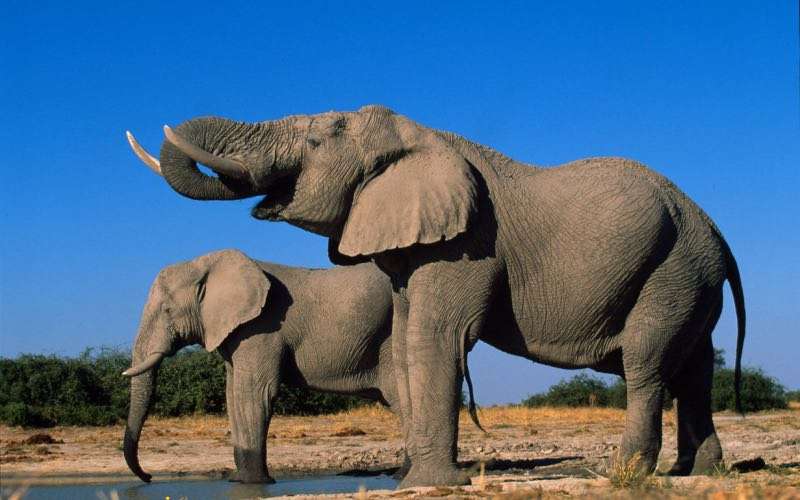Snapshot Serengeti Lets You Tag "Animal Selfies"
You can help researchers identify animals in millions of wildlife photos at "Snapshot Serengeti."

The illegal ivory trade in China was delivered two major blows last month when the state government and the country's largest social media platform began clamping down to protect the endangered African elephant.
During the public destruction of 662 kilograms of confiscated illegal ivory (1500 lbs) in Beijing, the Chinese government said that it was working to close down the nation's legal domestic ivory market.
The May 29 announcement from the State Forestry Administration said Chinese authorities will "strictly control ivory processing and trade until the commercial processing and sale of ivory and its products are eventually halted."
"This decision will have a profound impact on wild elephant conservation and ivory trafficking," said Lo Sze Ping, Chief Executive Officer of WWW China.
The recent destruction of tusks and carved ivory that were seized since 2014 follows an ivory destruction event held in Guangdong, China, in January 2014 when 6.15 tons of confiscated ivory were crushed.
Partnering with The Nature Conservancy and the International Fund for Animal Welfare, Tencent launched an official account on Weixin, called ‘Tencent for the Planet', to provide a reporting channel for clamping down on the illegal activities online, after it had learned through user complaints about the steady growth of illegal wildlife trade on the Internet.
To promote elephant conservation awareness, Tencent also opened a voting process for Weixin users for a new set of emoji featuring elephants.
Other nations and territories to destroy ivory stockpiles recently include Belgium, Republic of Congo, France, Gabon, Hong Kong, Kenya, UAE and the USA.
Photos: (top) Tencent, (home) Martin Harvey © WWF
Be the first to comment